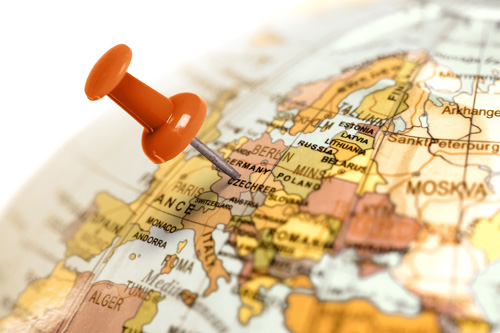Blog
2018.11.12
About transeuro
Interview with the mysterious translators of transeuro – Issue 3
As the third issue of our series “Interview with the mysterious translators of transeuro”, we present the interview with the Japanese to German translator H.N.
H.N. has been in contact with the German language since her childhood. At university, she studied German literature and after graduation, she went to Germany to study theater for 2 years. She is still actively acting on stage as a hobby. Read further to find out what a translator that does translate to a language that is not her mother tongue has to say.
Which languages do you translate and what is your special field?
I translate office actions from the patent office, amendments from patent lawyers and other patent filing documents from Japanese to German. My special field is technical engineering.
Please tells us more about your career before and since you joined transeuro.
I studied German literature at university and went to Germany after graduation. In Germany, I majored in theater and European ethnology. After 2 years I returned to Japan and started working as a translator. In the beginning, I had no idea what a patent specification is, I couldn’t understand the notices sent out from the patent office and there was a lot of German vocabulary used in patent translation I had never heard of before. But the lawyers, my fellow translators, and German coworkers helped me get through this. Before I realized it I had been working at a patent and law office for over 14 years. After that, the translation department became a separate firm and that is where we are now.

Why did you decide to become a translator?
When I was studying in Germany my aunt asked me to send her a certain medical shampoo that was not available in Japan at that time. I translated the instructions for use for her and she really appreciated it. At that time I first realized that translations are useful and can make people happy. I had translated literature at university before but this was the first time I translated something to help someone that doesn’t understand German at all. I believe that this experience led me to become a translator.
It has been two and a half years since transeuro, that originally was the translation department of a law firm, became a separate firm. Did your attitude and thoughts about translation change?
My general attitude towards translation has not changed. However, before the separation, I was only translating patent documents and therefore was focused on increasing my knowledge mainly in this field. After the separation, I started to work in other fields so I realized that from now on I will have to stay up to date in other fields as well.
As a translator you mainly work on Japanese to German translations, what do you think are the difficulties of this language combination?
The most difficult aspect is that I am not a native speaker. I have been translating for a long time but sometimes I am still unsure about the usage of indefinite and definite articles and when to use plural or singular.
(Translators Comment: The Japanese language does not know the concepts of articles and there is also no real plural form, therefore these two concepts usually are most difficult for Japanese speakers to understand. But please rest assured as all our translations to German are checked by a native speaker to avoid such mistakes. )
You are also translating non-patent documents. How is it like to translate in different fields?
In different fields, you have to find completely different translations for the same word. In a field you are not familiar with it takes time to check whether a translation is appropriate. On the other hand, the satisfaction you feel when the translation is completed is worth the extra time.
What are the strengths of transeuro?
I believe our greatest strength is that we are an assembly of pro translators for the German language. There probably is no other translation company in Japan that employs so many translators that can translate from and to German on such a high level.
What does Germany mean to you personally?
Since my parents were exchange students in Germany I grew up in a house where German friends came to visit often. For me, Germany is the foreign country I feel closest to.
Frankly spoken, if you weren’t a translator, what job would you be doing?
I realized early that I wanted to work in a profession where I can make use of my German skills and knowledge about theater. I probably would have chosen a profession where I can work with German theater crews or Opera singers that come to Japan so that I could become the bridge between the cultures.
The CEO of transeuro is often talking about a “rocking!” translation company. What do you think this means?
I am not exactly sure what kind of translation company he is aiming for, but I think it means that we all should concentrate our efforts on providing translations that fit the needs of your clients. I want us to be the first choice when it comes to translation from and to German.
A message to the readers
Recently you hear more and more people saying that the job of translators will be taken over by AI but I think there are still a lot of tasks that need to be done by a human.
For everyone that is aspiring to become a translator, my advice is that of course working on your language skills is important but you should also specialize in a certain field. If you like foreign languages the profession of translator is perfect for you. Good luck.
Similar Posts
[jetpack-related-posts]



Leave a Reply